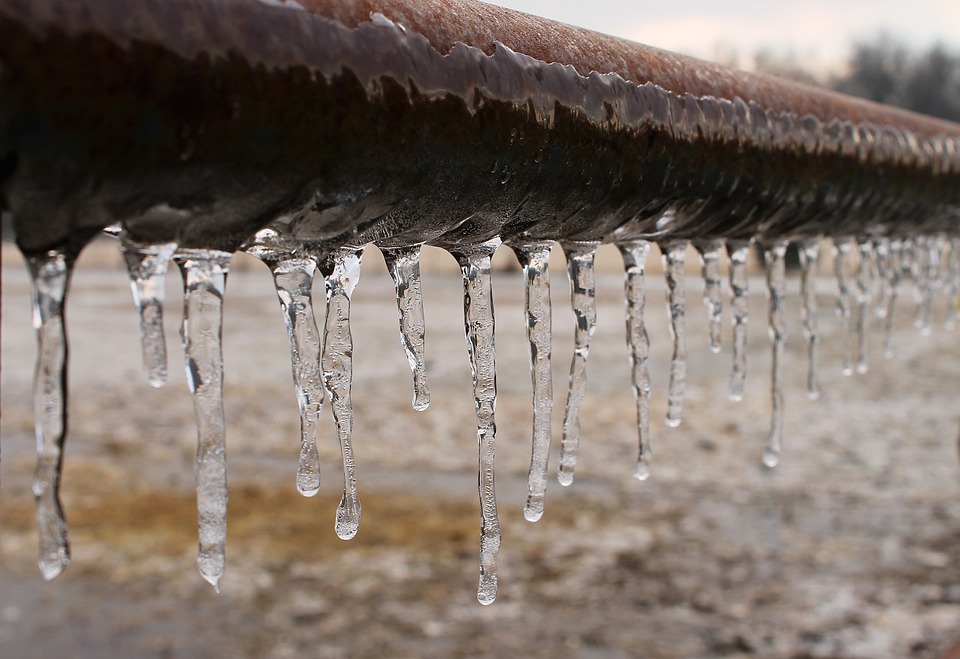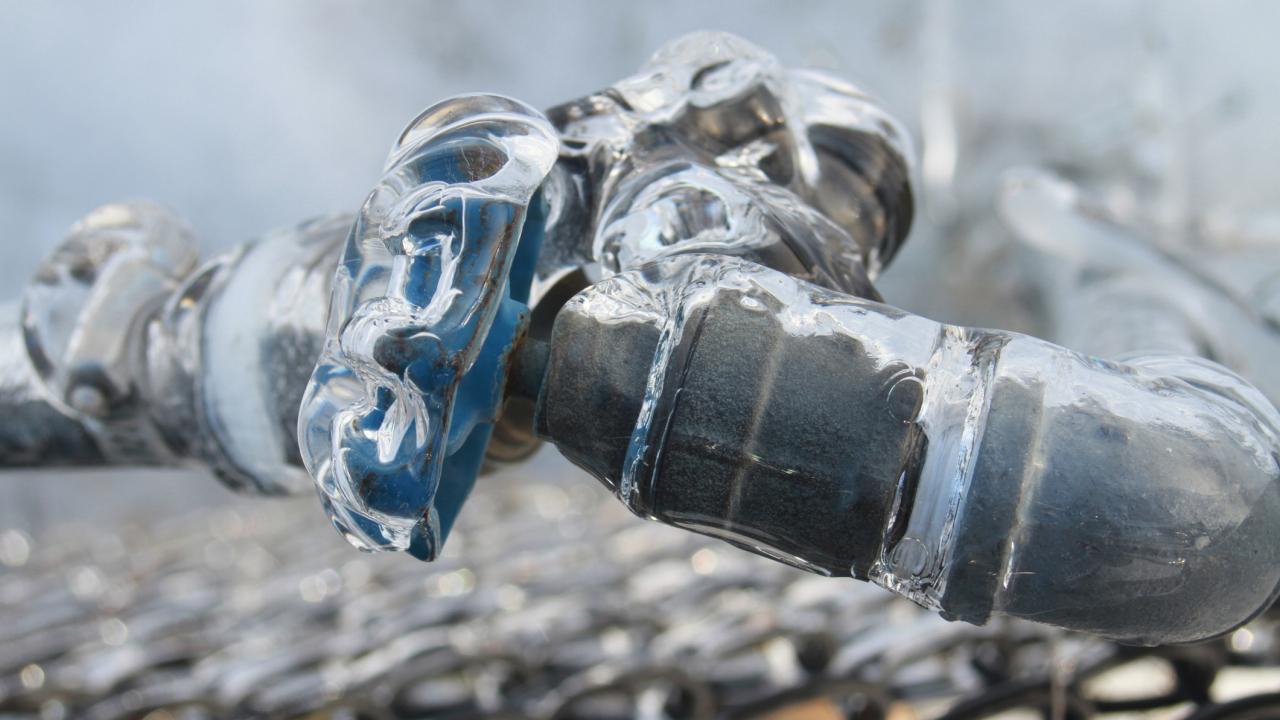Key Methods for Avoiding Frozen Plumbing in Cold Weather
Key Methods for Avoiding Frozen Plumbing in Cold Weather
Blog Article
The article directly below pertaining to Helpful Tips to Prevent Frozen Pipes this Winter is exceptionally attention-grabbing. Don't skip it.

Cold weather can ruin your plumbing, especially by freezing pipelines. Right here's exactly how to avoid it from taking place and what to do if it does.
Intro
As temperature levels decline, the threat of frozen pipes boosts, possibly causing pricey repair services and water damage. Understanding just how to avoid frozen pipelines is important for property owners in cool climates.
Prevention Tips
Shielding susceptible pipes
Cover pipes in insulation sleeves or make use of warm tape to secure them from freezing temperatures. Focus on pipelines in unheated or outside areas of the home.
Home heating techniques
Keep indoor spaces appropriately warmed, specifically areas with plumbing. Open closet doors to allow warm air to distribute around pipes under sinks.
Exactly how to identify frozen pipes
Try to find lowered water flow from taps, uncommon odors or noises from pipes, and noticeable frost on exposed pipes.
Long-Term Solutions
Architectural modifications
Take into consideration rerouting pipelines away from outside walls or unheated areas. Add extra insulation to attic rooms, cellars, and crawl spaces.
Updating insulation
Purchase high-grade insulation for pipelines, attics, and walls. Correct insulation aids preserve consistent temperatures and lowers the danger of frozen pipelines.
Securing Outside Pipes
Garden hoses and exterior taps
Detach and drain yard pipes before winter months. Install frost-proof faucets or cover outdoor faucets with shielded caps.
Comprehending Icy Pipes
What triggers pipelines to ice up?
Pipes freeze when revealed to temperatures below 32 ° F (0 ° C) for prolonged durations. As water inside the pipelines freezes, it expands, putting pressure on the pipeline wall surfaces and possibly creating them to break.
Risks and damages
Frozen pipes can result in water system disturbances, home damages, and costly repair services. Burst pipes can flood homes and create considerable architectural damages.
Indications of Frozen Pipeline
Identifying icy pipelines early can avoid them from rupturing.
What to Do If Your Pipes Freeze
Immediate activities to take
If you presume frozen pipelines, keep taps available to ease pressure as the ice thaws. Use a hairdryer or towels taken in hot water to thaw pipelines slowly.
Verdict
Avoiding icy pipes calls for proactive actions and quick actions. By understanding the reasons, indicators, and preventive measures, home owners can protect their plumbing throughout winter.
Helpful Tips to Prevent Frozen Pipes this Winter
UNDERSTANDING THE BASICS: WHY PIPES FREEZE AND WHY IT’S A PROBLEM
Water freezing inside pipes is common during the winter months, but understanding why pipes freeze, and the potential problems it can cause is crucial in preventing such incidents. This section will delve into the basics of why pipes freeze and the associated problems that may arise.
THE SCIENCE BEHIND FROZEN PIPES
When water reaches freezing temperatures, it undergoes a physical transformation and solidifies into ice. This expansion of water as it freezes is the primary reason pipes can burst. As the water inside the pipe freezes, it expands, creating immense pressure on the walls. If the pressure becomes too great, the pipe can crack or rupture, leading to leaks and water damage.
FACTORS THAT CONTRIBUTE TO PIPE FREEZING
Low Temperatures: Extremely cold weather, especially below freezing, increases the risk of pipes freezing. Uninsulated or Poorly Insulated Pipes: Pipes located in unheated areas, such as basements, crawl spaces, or attics, are more prone to freezing. Insufficient insulation or lack of insulation altogether exacerbates the problem. Exterior Wall Exposure: Pipes running along exterior walls are susceptible to freezing as they encounter colder temperatures outside. Lack of Heating or Temperature Regulation: Inadequate heating or inconsistent temperature control in your home can contribute to frozen pipes. PROBLEMS CAUSED BY FROZEN PIPES
- Pipe Bursting: As mentioned earlier, the expansion of water as it freezes can cause pipes to burst, resulting in significant water damage.
- Water Damage: When pipes burst, it can lead to flooding and water damage to your property, including walls, ceilings, flooring, and personal belongings.
- Structural Damage: Prolonged exposure to water from burst pipes can compromise the structural integrity of your home, leading to costly repairs.
- Mold and Mildew Growth: Excess moisture from water damage can create a favorable environment for mold and mildew growth, posing health risks to occupants.
- Disrupted Water Supply: Frozen pipes can also result in a complete or partial loss of water supply until the issue is resolved.
WHY CERTAIN PIPES ARE MORE PRONE TO FREEZING
- Location: Pipes located in unheated or poorly insulated areas, such as basements, crawl spaces, attics, or exterior walls, are at higher risk of freezing.
- Exterior Pipes: Outdoor pipes, such as those used for irrigation or exposed plumbing, are particularly vulnerable to freezing as they are directly exposed to the elements.
- Supply Lines: Pipes that carry water from the main water supply into your home, including the main water line, are critical to protect as freezing in these lines can affect your entire plumbing system.
- Underground Pipes: Pipes buried underground, such as those connected to sprinkler systems or outdoor faucets, can be susceptible to freezing if not properly insulated.
https://busybusy.com/blog/helpful-tips-to-prevent-frozen-pipes-this-winter/

Hopefully you enjoyed our excerpt about Prevent Frozen Pipes . Many thanks for taking the time to browse our piece. Loved our piece of writing? Please quickly share it. Help somebody else locate it. Thank-you for going through it.
Estimate Free Report this page